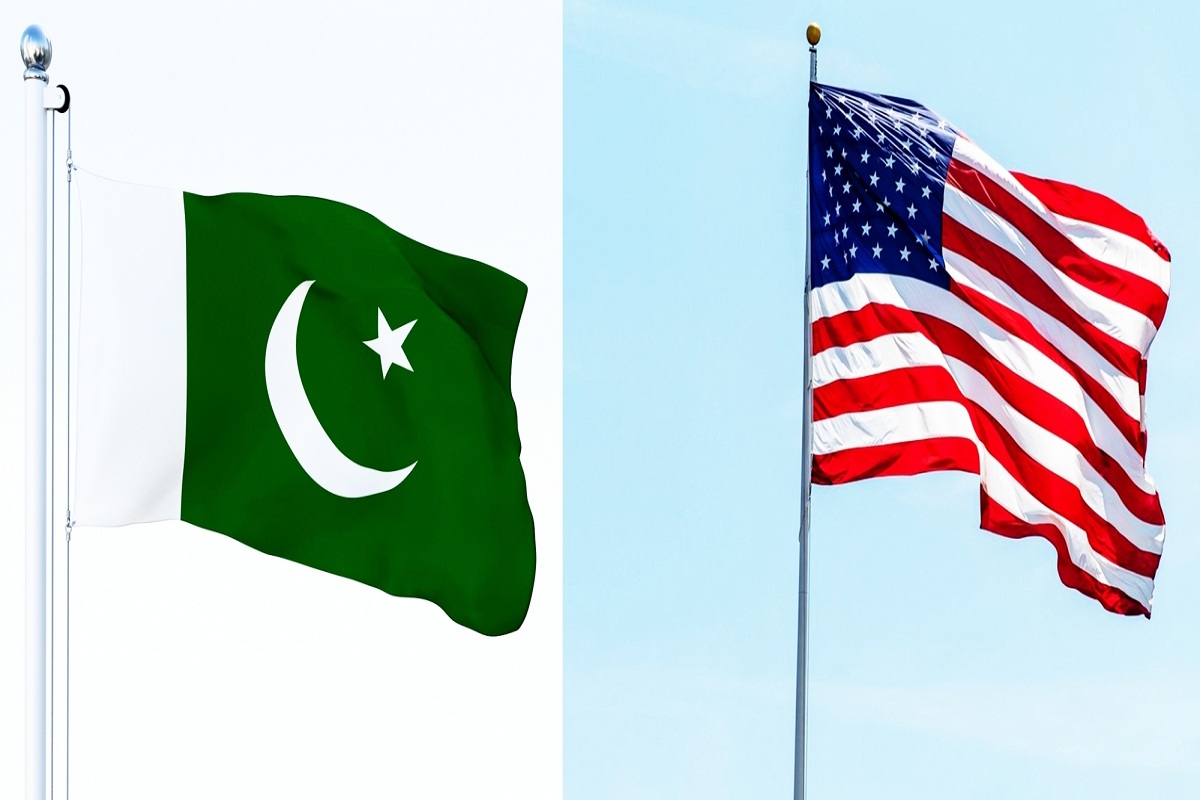Deportation Drive
The deportation of illegal Indian migrants from the United States on a military aircraft marks a stark escalation in immigration enforcement under President Donald Trump’s administration.
The discussions to be held between the Pakistani and the US establishment on the sidelines of the ongoing UN session would give some indication of how the two sides coordinate their activities in the Afghan context.

(Photo: IANS)
Last few months and especially the last few weeks after the withdrawal of US troops from Afghanistan, Pakistan’s lies have been revealed time and again.
Islamabad has been consistently denying its close association with the Taliban and Pakistani officials have avoided responding to queries regarding the large number of Taliban leaders who have traditionally been trained in Pakistan-based seminaries and lived in the country.
Advertisement
At the same time, whenever the Taliban adopts a soft diplomatic stance and attempts to reach out to other countries, Pakistan does not lose the opportunity to forewarn their leaders that they cannot go their own way especially after having been fed and hosted in Pakistan all these years.
Advertisement
The reality of Pakistan’s association with the Taliban, especially with senior Taliban leaders, some of who have worked closely with the Pak establishment/ISI, and their linkages with terror entities such as the Al Qaeda and the Islamic State (IS) has been known to those closely following the terrorism matrix.
The international community, especially the Western forces led by the US deployed in Afghanistan over the years, have clarity on the extent and degree of synergy that exists between the ISI and senior Taliban leaders.
Moreover, the latest turn of events, where one witnessed Pakistan’s brazen handling of the political dynamics in Afghanistan, leaves no room for any doubt about Pakistan’s close association with the Taliban. Indeed, it is a challenging task for Pakistani officials to pursue the middle path with their hand in every political maneuvering undertaken by the Taliban while simultaneously having to deny any close association with the Taliban.
However, Pakistani officials are adept at playing this duplicitous game considering this has been an inherent part of their strategic maneuvres in Afghanistan.
Such traits are also visible among the senior leadership in the Pakistani establishment. One recently witnessed a complete turnaround by Prime Minister Imran Khan, who at one stage was critical of US withdrawal from Afghanistan and even resorted to using strong language stating that “Pakistan has been used and exploited by the US”.
Khan has also said in interviews that US President Joe Biden cannot be as busy to avoid speaking to him telephonically. Such sarcastic remarks have been made vis-a-vis the US by a number of other Pakistani leaders as well.
However, upon landing in the US, Khan changed his tone and tenor when he claimed that the US withdrawal was indeed justified and that the criticism of Biden on this issue was “not warranted”.
This indicates that while Pakistan has been portraying that it has been agitated with the cold-shouldering by the US, at the same time they cannot do without the US when it comes to dealing with Afghanistan. Moreover, Pakistan realises that any distancing from the US would dampen all prospects of international recognition of the Taliban government at different levels, including in terms of foreign aid.
At the same time, the American establishment cannot be oblivious of Pakistan’s double-dealing in Afghanistan over the years. Former President Donald Trump had clearly highlighted the Pakistani strategy in Afghanistan when he said at the end of his tenure that “Islamabad had hurt the American troops by playing between the US and the Taliban”.
This manipulative approach by Pakistan in Afghanistan has built a strong narrative within the US establishment that Pakistan should indeed face the consequences of the duplicitous game they have played over the years with the US. In a way, there is overwhelming thinking in the US establishment that Pakistan needs to bear the brunt of its own doing.
The Biden administration has rightly taken a hard stand against Pakistan ignoring the Pakistani leadership, including Khan.
Years of presence in Afghanistan have given the US establishment enough food for thought in terms of its dealings with Pakistan. The relationship hinged on mutual benefit as far as Afghanistan was concerned, though the Americans feel that Pakistan resorted to a bitter game of truth and lies with the US, which led to serious casualties among American troops.
In spite of the fair-weather friend extending support and assistance to Pakistan in Afghanistan, those in the Pakistani military who have had years of close association with the US defence establishment realise that there is a need to engage the US in Afghanistan nevertheless.
Considering the US had over the years created an extensive and well-integrated operational infrastructure in Afghanistan and has a better understanding of the security dynamics on the ground there, Pakistan would want the US to remain involved in Afghanistan in some way or the other.
There appears to be a tacit understanding with the Chinese on this issue, especially after the Chinese have begun to realise that Afghanistan is not going to be a smooth sail. The discussions to be held between the Pakistani and the US establishment on the sidelines of the ongoing UN session would give some indication of how the two sides coordinate their activities in the Afghan context.
Advertisement